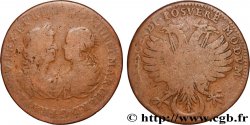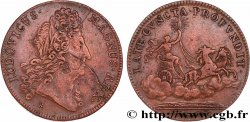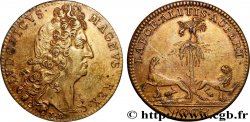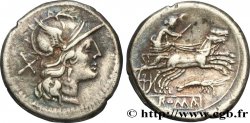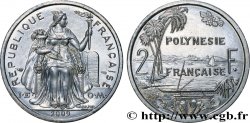fjt_049440 - LOUIS XIV LE GRAND ou LE ROI SOLEIL Réduction de Strasbourg 1681
No disponible.
Artículo vendido en nuestra tienda
Precio : 83.85 €
Artículo vendido en nuestra tienda
Precio : 83.85 €
Tipo : Réduction de Strasbourg
Fecha: 1681
Metal: cobre rojo
Diámetro: 41 mm
Canto: lisse, poinçon (abeille)
Cuño: Abeille (1860 - 1880)
N° en los catálogos de referencia :
Anverso
Titulatura del anverso: LUDOVICUS MAGNUS REX CHRISTIANISSIMUS.
Descripción del anverso: Buste de Louis XIV à droite, signé DOLLIN. F.
Traducción del anverso: Louis le Grand, roi très chrétien.
Reverso
Titulatura del reverso: SACRA RESTITUTA..
Descripción del reverso: Au premier plan le Rhin couché sur son urne, tenant une corne d’abondance. Dans le fond la ville de Strasbourg avec ses fortifications ; à l’exergue : ARGENTORATUM / RECEPTUM. / M. DC. LXXXI.
Comentario
Au congrès de Nimègue, l’indépendance de Strasbourg n’avait pas été garantie. Sur l’insistance de la France, les troupes impériales évacuèrent la ville au commencement de l’an 1680. Ce fut le moment où Louis XIV ordonna les préparatifs pour une opération militaire et son armée s’avança vers Strasbourg. Le gouvernement de la ville décida d’ouvrir les portes aux troupes françaises le 30 septembre. Trois jours après, le roi fit son entrée dans la ville et assista à un Te Deum dans la cathédrale qui avait été rendue au culte catholique.
At the Congress of Nijmegen, Strasbourg's independence had not been guaranteed. At France's insistence, imperial troops evacuated the city in early 1680. This was when Louis XIV ordered preparations for a military operation, and his army advanced on Strasbourg. The city government decided to open the gates to French troops on September 30. Three days later, the king entered the city and attended a Te Deum in the cathedral, which had been returned to Catholic worship.
At the Congress of Nijmegen, Strasbourg's independence had not been guaranteed. At France's insistence, imperial troops evacuated the city in early 1680. This was when Louis XIV ordered preparations for a military operation, and his army advanced on Strasbourg. The city government decided to open the gates to French troops on September 30. Three days later, the king entered the city and attended a Te Deum in the cathedral, which had been returned to Catholic worship.








 Informar de un error
Informar de un error Imprimir la página
Imprimir la página Comparte mi selección
Comparte mi selección Haz una pregunta
Haz una pregunta Consignar / vender
Consignar / vender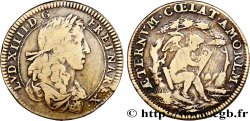
 Descriptivo
Descriptivo

